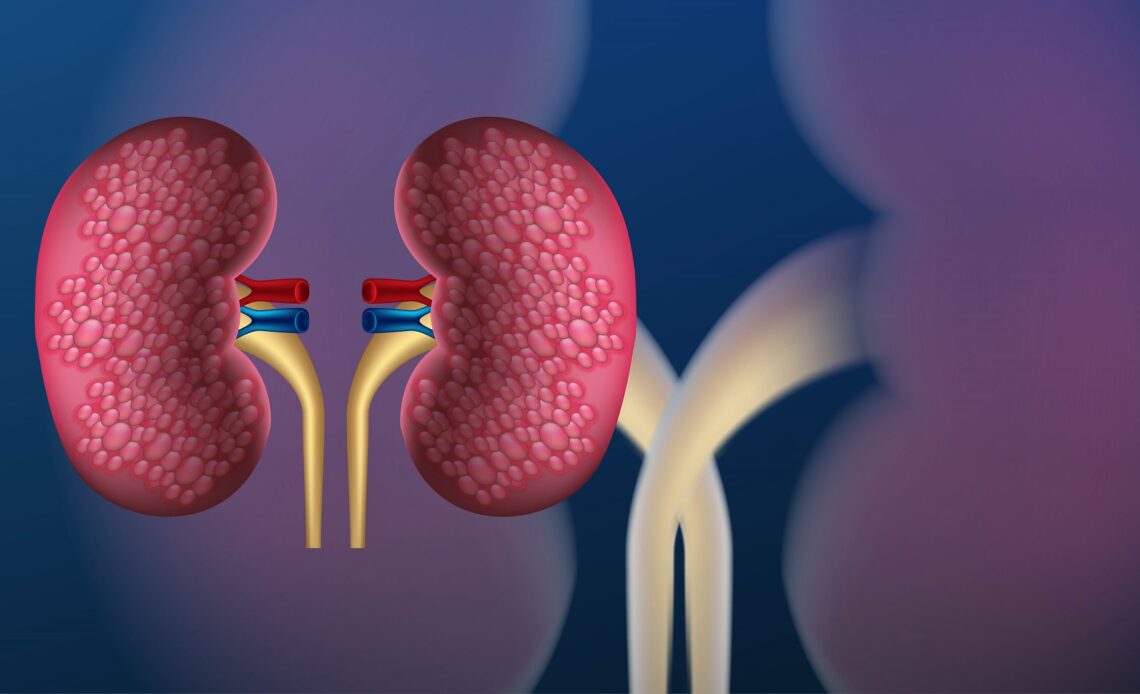Sugar is everywhere—sneaking into your morning coffee, hiding in your salad dressing, and dominating the labels of your favorite snacks. While we often worry about sugar’s impact on our waistlines or teeth, a lesser-known but potentially life-threatening consequence is its impact on our kidneys. These bean-shaped organs are quietly responsible for filtering about 50 gallons of blood a day, and when they’re under constant sugar assault, they can start to fail.
So what exactly is the sugar-kidney connection—and why should you care?
The Quiet Workhorse: What Your Kidneys Do?
our kidneys are small but powerful organs that work tirelessly behind the scenes to keep your body healthy. They filter waste and toxins from your blood, balance your body’s fluids, regulate blood pressure, and even support the production of red blood cells. Without healthy kidneys, your body would quickly become overwhelmed with waste and imbalances, making it impossible to survive.
While we often take our kidneys for granted, the reality is that everyday choices—especially the foods we eat—directly affect their health. In particular, consuming too much sugar puts extra stress on the kidneys, increasing the risk of kidney disease over time. Understanding the vital role your kidneys play can help you make smarter choices to protect them for the long term.

How Sugar Wreaks Havoc?
The most obvious link between sugar and kidney disease starts with diabetes—particularly type 2 diabetes, which is often triggered by high sugar consumption and poor lifestyle habits. High blood sugar levels damage the blood vessels in the kidneys over time, making them less effective at filtering waste. This condition is known as diabetic nephropathy, and it’s one of the leading causes of kidney failure worldwide.
But you don’t have to be diabetic to be at risk.
Consistently high sugar intake can lead to insulin resistance, a precursor to diabetes. It can also contribute to obesity, high blood pressure, and chronic inflammation—all of which are significant risk factors for chronic kidney disease (CKD). Essentially, sugar’s damage is systemic. Once it disrupts your metabolism, your kidneys start to pay the price.
Sugar’s Hidden Forms
It’s easy to point fingers at soda and candy, but sugar shows up in unsuspecting places too. Many “healthy” products like yogurt, granola bars, and even whole grain breads contain added sugars. The American Heart Association recommends limiting added sugar to no more than 25 grams (6 teaspoons) per day for women and 36 grams (9 teaspoons) for men—but the average American consumes more than double that amount.
Reading labels and identifying ingredients like high-fructose corn syrup, dextrose, sucrose, and maltose can help you avoid the stealthy sources of sugar that may be sabotaging your health. This excessive intake of added sugars is not just a concern for weight gain; it also significantly increases the risk of developing diabetes.

The Long game: Why Early Changes Matter?
One of the scariest things about kidney disease is that it often develops without noticeable symptoms. By the time fatigue, swelling, or changes in urination occur, damage may already be significant. That’s why prevention—starting with cutting sugar—is so critical.
Making smart choices now can reduce your risk dramatically. Studies show that reducing sugar intake can lower blood pressure, improve insulin sensitivity, and reduce the strain on kidneys. Even small reductions in sugar can have a compounding effect over time.
Simple Swaps That Protect Your Kidneys
Making small changes in your daily habits can have a big impact on your kidney health. Here are some practical and easy swaps to help you cut back on sugar and protect your kidneys:
- Skip the Soda: Sugary drinks like soda are major sources of hidden sugar. Swap them out for healthier options like water, sparkling water, or unsweetened tea to keep your kidneys healthy and hydrated.
- Read the Labels: Packaged foods often sneak in added sugars. Aim to choose products that have 5 grams or less of added sugar per serving. Being mindful of food labels helps you stay in control of your sugar intake.
- Cook More at Home: Meals from restaurants and packaged foods can be loaded with hidden sugars. Preparing meals at home gives you better control over ingredients and helps you avoid unnecessary sugar.
- Go for Whole Fruits: Instead of fruit juices or sweetened snacks, choose whole fruits. They contain natural sugars along with fiber, which slows down sugar absorption and reduces the strain on your kidneys
- Balance your plate: Include protein, healthy fats, and fiber with meals to reduce blood sugar spikes.
Don’t Forget Hydration
Water is one of the simplest and most powerful tools for protecting your kidney health. Your kidneys need plenty of fluids to efficiently filter waste and toxins from your blood. Staying well-hydrated also helps maintain stable blood volume and supports healthy blood pressure — both of which are critical for kidney function.
If you’re swapping sugary drinks for plain water, you’re giving your kidneys a major boost. Cutting out excess sugar while keeping your body hydrated reduces the strain on your kidneys and helps them work at their best. Aiming for steady, regular water intake throughout the day can make a big difference in maintaining strong, healthy kidneys.

The Bigger Picture: Sugar and Systemic Health
Cutting sugar doesn’t just help your kidneys. It improves your heart health, reduces your risk of metabolic syndrome, improves energy levels, supports weight loss, and even benefits your mental clarity. In essence, your entire body operates more efficiently with less sugar—and your kidneys, being the filters of your bloodstream, are among the first to reap the benefits.
Takeaway: It’s Time to Pay Attention
You don’t need to eliminate all sugar from your life to protect your kidneys—but you do need to be mindful. The small, everyday choices we make—reaching for water instead of juice, saying no to a second cookie, checking nutrition labels—can have a profound effect on our long-term health.
Our kidneys may be silent workers, but the damage from sugar is not silent forever. Whether you’re already managing health concerns or just trying to stay ahead of the game, reducing sugar intake could be the life-saving decision you didn’t know you needed to make.
Cutting back on sugar isn’t about deprivation—it’s about preservation. And when it comes to your kidneys, that’s a choice worth making.


